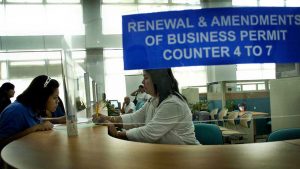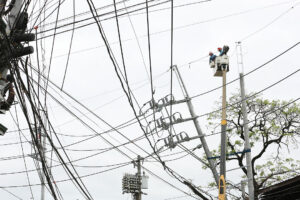E-governance bill seeking to digitize gov’t services refiled in House

LEGISLATORS have refiled a bill in the House that seeks to move most government transactions online after it failed to pass in the previous Congress.
House Bill 3, or the proposed E-Governance Act of 2022, is based largely on the previously filed Senate Bill 1738, which was stuck in committee when the 18th Congress ended.
“The shift to digital platforms has been a long time coming,” Leyte Rep. Martin G. Romualdez, who is expected to become the next Speaker, said in a statement accompanying the bill. “The COVID-19 pandemic only expedited the need for its execution.”
Mr. Romualdez said the government should be responsive to the needs of the populace instead of adding to their burdens. Digitalization of services “is evidently the most efficient solution to the gap in the delivery of government services.”
The proposed measure “seeks to establish an integrated, interconnected, and interoperable information, resource sharing and communications network, which shall include internal records, management information system, information database, and digital portals spanning the entirety of the national and local government for the delivery of public services,” according to the bill.
The measure will promote the use of the internet, intranets, and emerging technologies to provide “citizen-centric government information and services.” It also pushes for the end of paper–based workflows.
Under the bill, the head of each agency, local government unit or state corporation, will be responsible for implementation.
The Department of Information and Communications Technology (DICT) was designated the principal implementer of the proposed E-Governance Act through a project management office organized within a year from the effectivity of the law.
If the measure passes, the DICT will be tasked with harmonizing and coordinating all information technology-related plans and initiatives “to ensure knowledge, information and resource-sharing, database-building, and agency networking linkages among government agencies, consistent with e-government objectives in particular and national objectives in general.”
It must set up an Integrated Government Network which will be the primary means of sharing resources, information, and data on digital platforms across all government offices.
The bill also directs the government to establish and maintain a database of information on all citizens, whether residing here or overseas, and foreigners entering the country through legal channels. Agencies will have access to such data “for legitimate and valid purposes, subject to the Data Privacy Act.”
A Philippine Public Service Directory will also be made available to the public with a listing of all government officials, with their contact information and office location, among other details.
The bill also requires the establishment of a service portal, allowing the public to transact with agencies online. The bill sets timelines for responsible personnel to act or decide on requests or applications. Another portal will be set up for online payments.
If signed into law, a Citizens’ Concerns Center will also be set up as a channel for the public to report their complaints, grievances or concerns.
The bill also requires the government to provide free internet access to the public, including internet-capable devices in all barangay centers. — Alyssa Nicole O. Tan




